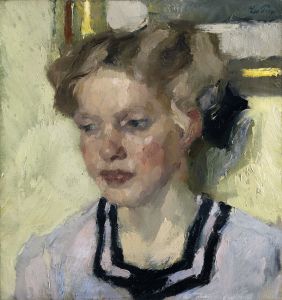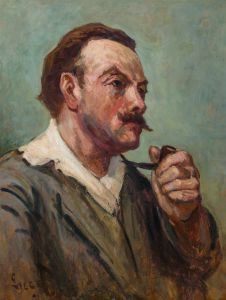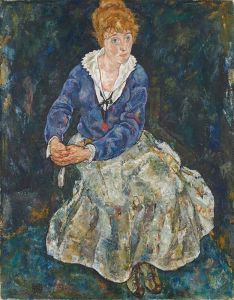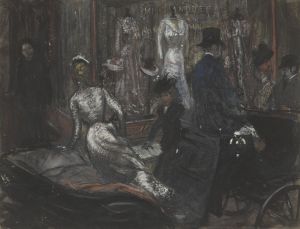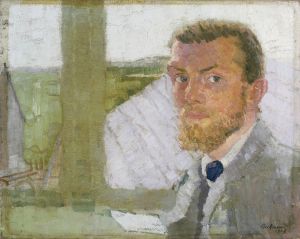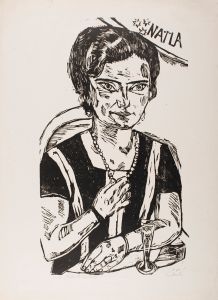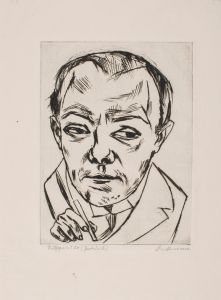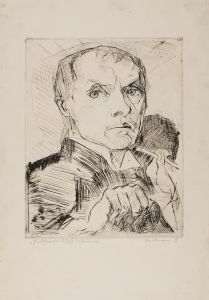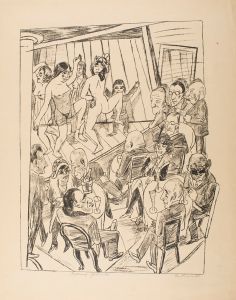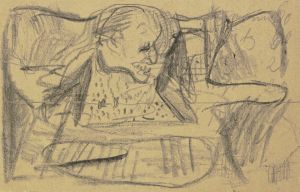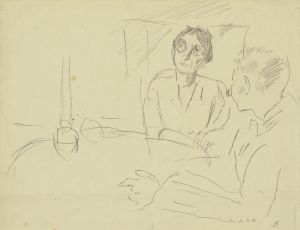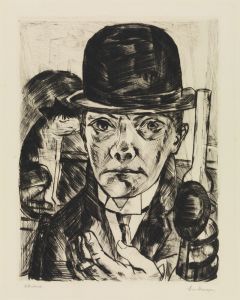
Woman on a Sofa , title sheet from the suite ‘The Duchess’
A hand-painted replica of Max Beckmann’s masterpiece Woman on a Sofa , title sheet from the suite ‘The Duchess’, meticulously crafted by professional artists to capture the true essence of the original. Each piece is created with museum-quality canvas and rare mineral pigments, carefully painted by experienced artists with delicate brushstrokes and rich, layered colors to perfectly recreate the texture of the original artwork. Unlike machine-printed reproductions, this hand-painted version brings the painting to life, infused with the artist’s emotions and skill in every stroke. Whether for personal collection or home decoration, it instantly elevates the artistic atmosphere of any space.
Max Beckmann, a prominent German painter and printmaker, created the artwork titled "Woman on a Sofa," which serves as the title sheet for the suite known as "The Duchess." Beckmann is renowned for his contributions to the Expressionist movement, although he personally rejected the label, preferring to be seen as an independent artist. His work often reflects the tumultuous socio-political landscape of early 20th-century Europe, marked by two World Wars and significant cultural shifts.
"Woman on a Sofa" is part of Beckmann's exploration of human conditions and societal roles, themes that are recurrent throughout his oeuvre. The suite "The Duchess" is a collection that delves into the complexities of identity, power, and the human psyche. Beckmann's works from this period often feature bold lines, stark contrasts, and a deep psychological intensity, characteristics that are likely present in "Woman on a Sofa."
Beckmann's art is known for its symbolic depth and often includes allegorical elements. His style is marked by a robust use of color and form, which he employs to convey emotional and psychological states. The figures in his works are frequently depicted in confined spaces, suggesting a sense of entrapment or introspection. This approach can be seen as a reflection of Beckmann's own experiences and observations during a time of great upheaval.
The period during which Beckmann created "The Duchess" suite was one of significant personal and professional transformation. After serving in World War I, Beckmann's work took on a more introspective and critical tone. He became increasingly focused on the human condition, exploring themes of existentialism and the complexities of modern life. This shift is evident in the psychological depth and intensity of his post-war works.
Beckmann's influence extends beyond his paintings and prints; he was also a respected teacher and writer. His thoughts on art and society were influential among his contemporaries and continue to be studied by art historians today. Despite facing political persecution during the Nazi regime, which labeled his work as "degenerate art," Beckmann remained committed to his artistic vision. He eventually emigrated to the United States, where he continued to create and teach until his death in 1950.
"Woman on a Sofa" and the suite "The Duchess" exemplify Beckmann's ability to capture the complexities of human emotion and societal roles. Through his distinctive style and thematic focus, Beckmann offers a window into the psychological and existential questions that defined much of the 20th century. His work remains a significant part of art historical discourse, appreciated for its depth, intensity, and enduring relevance.





